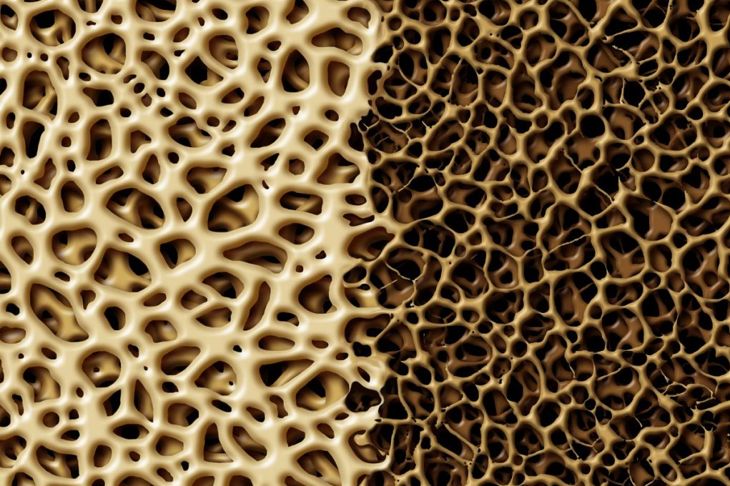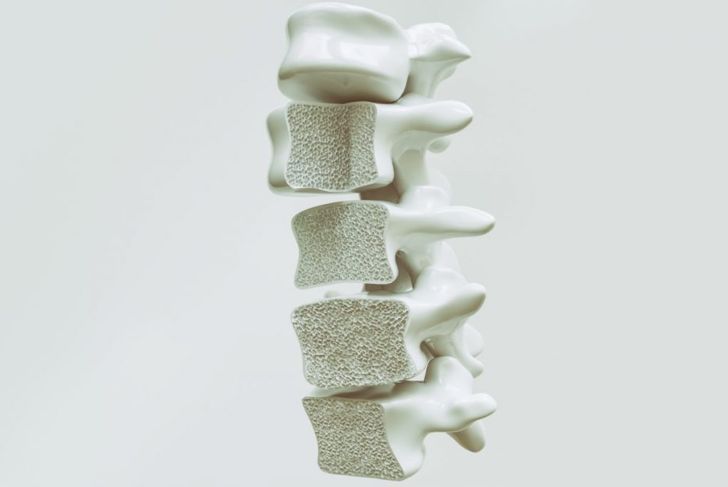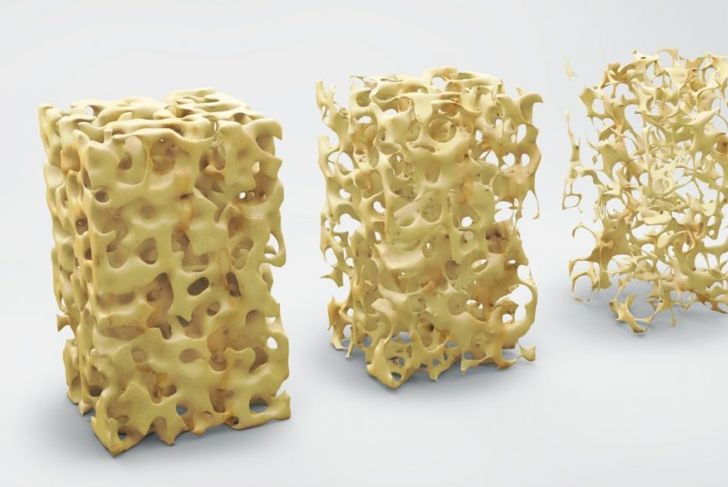Your bones do a lot of work to move you around. For their size, they’re incredibly strong, capable of holding hundreds of pounds upright, and protect your vital organs from injury. White blood cells are produced in the bone marrow. Your bones aren’t just stuck propping you upright – they’re a vital part of your body and require care and attention. Your skeletal health sometimes goes underestimated – many people don’t realize how hard their bones work until they’ve developed “brittle bones.” These tips for healthy bones can help you make the most of your health!
What is bone brittleness?
Your bones are constantly changing – old bone is replaced by new bone as you grow, resulting in your final bone mass, which happens somewhere around the age of thirty. Many factors contribute to your overall bone density, such as nutrition, strength training, and proper amounts of calcium, the building block of bone. Other factors, such as body size (mass) and gender play a role in the density of your bones. The chances of developing osteoporosis, the condition that causes your bones to become brittle and lose integrity, depends on your bone mass. Bone mass after the age of thirty begins to lessen, and those who don’t follow proper nutrition guidelines may lose bone mass at a faster rate, resulting in brittle bones. The higher your peak bone mass, the less likely you are to develop osteoporosis as you age.
Eat calcium-rich foods
Calcium is an essential mineral for building bones, and your body doesn’t produce it naturally. Eating calcium-rich foods (and drinking calcium-rich beverages) can give your body the tools it needs to build healthy bones. In fact, the more calcium you’re able to give your children while young, the greater bone density they develop in life. Calcium-rich foods include kale, spinach, arugula, yogurt or kefir, raw milk, and sardines. Pasteurized milk and cheeses also contain fair amounts of calcium. Don’t forget to add magnesium to your diet – this mineral is the helping hand for calcium: your body can’t properly utilize calcium without the help of magnesium.
Take calcium supplements
For those unable to get the required amount of calcium in their diet, over-the-counter calcium supplements are available. People who are lactose intolerant or who dislike the taste of dark leafy greens might have a hard time getting enough calcium naturally through diet. If you suspect you aren’t hitting your micronutrient goals, consult your physician. While the right amount of calcium is vital to a healthy muscle system, especially before the age of thirty, too much calcium can end up leaving deposits in your body that can cause ill health. To achieve the proper balance, have your physician evaluate your bloodwork and determine a nutrition and supplement plan that suits your individual needs.
Enjoy plenty of vitamin D
Vitamin D deficiency can lead to weaker bones, and bones are more likely to break. While studies are inconclusive about the exact role of vitamin D in producing new bone or healing a break, many studies show a definite correlation between bones that break more easily and vitamin D deficiency. You can get plenty of vitamin D from sunlight – a walk outside each day should give you enough. If you are unable to do so, eating foods that contain vitamin D, such as spirulina or oily fish like salmon, mackerel, sardines, and tuna, may help boost your vitamin D levels. You may also choose to supplement your diet with fish oil.
Practice weight-bearing fitness
Your bones grow and strengthen in response to the amount of pressure they’re under – the amount of mass on your body. A heavier individual will generally have stronger bones than a lighter one, simply because of the demands of the heavier person’s body. You can also achieve stronger bones by practicing weight-bearing exercises. Weight training at least three thirty-minute sessions per week can help develop stronger bones – and give you more muscle to support them, too! Weight training includes heavy lifting, which you should do under the guidance of a professional trainer to prevent injury. Lifting heavy weights has been shown to increase bone density in both men and women.
Quit smoking and reduce alcohol use
Cigarette smoking and excessive alcohol consumption have long been linked to a host of health conditions. One of these is the deterioration of bone density. When you drink alcohol, processing it through your body increases inflammation that can leach more calcium from bones. Smoking cigarettes also contribute to weak bones. While the direct effects of cigarettes on your body’s skeletal system aren’t completely understood, there is an extensive correlation between cigarette smokers and those with osteoporosis, especially women.
Have your bone density tested
If you’re concerned about your bone density, your physician may order a DXA test to analyze and treat the condition. This test is a quick and painless X-ray that gives the doctor a snapshot of your bone health. It also measures the bone mineral density and helps determine how likely you are to develop osteoporosis. Many doctors recommend testing within two years of menopause. However, your doctor may want to test you earlier if you show signs of brittle bones. Men and women with certain health conditions and those taking medications that increase risk, such as long-term steroid therapy, may also require this testing.
Know which health conditions affect bone health
People who have anorexia or bulimia are at risk of bone loss. These two eating disorders can reduce the amount of calcium your body can get naturally from food, and reduce your body’s ability to process the calcium it does get. Many young women with these conditions are also magnesium deficient, which inhibits the body’s ability to process calcium. In addition, stomach surgery or weight-loss surgery can affect calcium absorption. Stomach and bowel conditions such as Crohn’s disease and celiac disease can also affect your body’s ability to absorb calcium. Even irritable bowel syndrome can contribute to low calcium levels, as the condition prevents minerals from being properly extracted from your diet.
Consider your medications
Women who are on the cusp of menopause – or perimenopausal – may consider hormone therapy to increase their estrogen levels. Lower estrogen levels contribute to bone loss. Both women and men who are diagnosed with osteopenia or osteoporosis take medications to prevent dangerous hip and spine fractures. Bear in mind that none of the prescribed medications work without calcium and vitamin D as “building blocks” for healthy bones. On the other hand, if you’re taking medications for other conditions, watch your bone density. Long-term use of certain medications can damage the bones.
Incorporate healthy choices into your life
You can improve your bone health by making a few small changes in your everyday life. Instead of watching TV, choose to take a walk outside to boost vitamin D levels. For snacks, consider cheese, small salads of dark green leafy vegetables, or even salmon. Take fish oil supplements – these can’t hurt, and can even boost brain power. Choose strength training for some of your workouts, and avoid excessive smoking and drinking. When you make small changes, you’re better able to improve both your bone density and your overall health.

 Home
Home Health
Health Diet & Nutrition
Diet & Nutrition Living Well
Living Well More
More




















